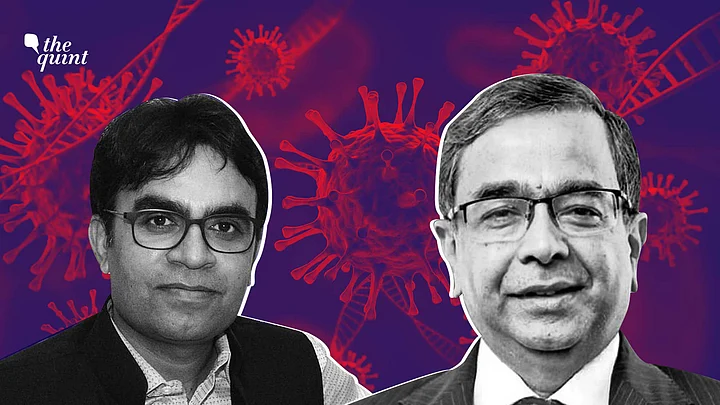A large number of infections are being reported in children under 5 years of age as the “highly transmissible” Omicron variant rages through South Africa.
Since alerting the world about the new variant, the country is seeing a sharp surge in numbers with 16,055 new infections being logged over just a day on Friday, taking the total cases in the country to over three million.
But what is worrying South African health officials, is the high number of hospitalisation of children under five and teenagers, unlike the previous waves which had not caused any serious illness among children.
Reports quoted government adviser Waasila Jassat as saying, “The incidence in those under 5 is now second highest, second only to those over 60...We’ve always seen children not being very heavily affected by the COVID epidemic in the past, not having many admissions. In the third wave, we saw more admissions in young children under 5 and in teenagers, 15-19, and now, at the start of this fourth wave, we have seen quite a sharp increase across all age groups, but particularly in the under 5s.”
But Why is Omicron Infecting More Children?
India has been on alert over the new variant as two Omicron cases were detected in Karnataka. The centre and states have imposed several travel restrictions as the variant which is the most heavily mutated variant of SARS-CoV-2 so far, is being feared to be more transmissible than the others.
But are the country's children at risk?
"There’s a biological reason as to why this particular variant maybe causing a little more illness among children than Delta or even the original viruses", Dr Srinath Reddy, President of Public Health Foundation of India told The Quint.
"You see children have a lower number of ACE2 receptors on their cells. As people grow older they will acquire more ACE2 receptors. So, earlier forms of the virus with lower number of spike proteins couldn’t attach themselves well to the children’s cells. With 32 spike protein mutations this is quite capable of attaching itself to the cells of children," he explains.
While higher infections are indeed being reported amongst children, until there's enough evidence to prove that they are getting seriously affected, there is no reason to panic yet, Dr Reddy says.
"Not only entry into the children's cells is more likely now, but they are also getting more infected because they were not exposed to the virus previously. Children are getting infected but are they getting seriously infected? Right now we have no such information. Obviously if children have the infection, they are being taken to the hospitals for a check up and therefore the numbers are being reported. But till we know if they are getting seriously infected, we shouldn’t start to get too worried."Dr Srinath Reddy, President of Public Health Foundation of India
Should Govt Speed Up Vaccinations for Children?
Despite the country's drug regulator already approving Zydus Cadila's ZyCoV-D for those aged 12 years and above and Covaxin for those between 2-18 years for immunity against coronavirus, vaccination for children hasn't begun yet in the country.
Should the government speed up vaccination for children in view of the spread of the Omicron variant across the world?
"Yes, many trials are showing that the previous versions of the vaccines are beneficial and safe and it’s possible that when we have enough number of vaccines, we’ll also get into vaccinating children in large numbers. But right now with the supplies that we have, we have to focus on giving every adult two doses, or those immunocompromised, elderly and health workers."Dr Srinath Reddy, President of Public Health Foundation of India
Speaking on whether there's a need to accelerate children's vaccination, Dr Chandrakant Lahariya, epidemiologist and health systems expert, said, "All the variants had different characteristics but the age distribution of the cases did not alter. If the original variant affected the elderly, the subsequent variant also affected elderly. Children were not affected by the variant differently, they were affected at the same proportion at a low rate unless proven otherwise."
"It is widely known why children are not being vaccinated. Vaccines prevent severe illness, hospitalisation and death which are already low in children. Having said that, it doesn’t mean children will never need vaccines. They will need vaccines that can reduce transmissions. Similarly, children who are at higher risk should be vaccinated and that’s a process,"Chandrakant Lahariya, epidemiologist and health systems expert
As many as five Covid-19 vaccines will soon be ready for children aged above 2, the Centre informed the Parliament on Friday, 4 December. Speaking about the status of Covid-19 vaccines for children in the country,
They are Cadila Healthcare's ZyCoV-D, Bharat Biotech's Covaxin, Serum Institute's Covovax, Biological E's RBD, and Johnson & Johnson's Ad 26COV.2S vaccine.
(At The Quint, we question everything. Play an active role in shaping our journalism by becoming a member today.)
